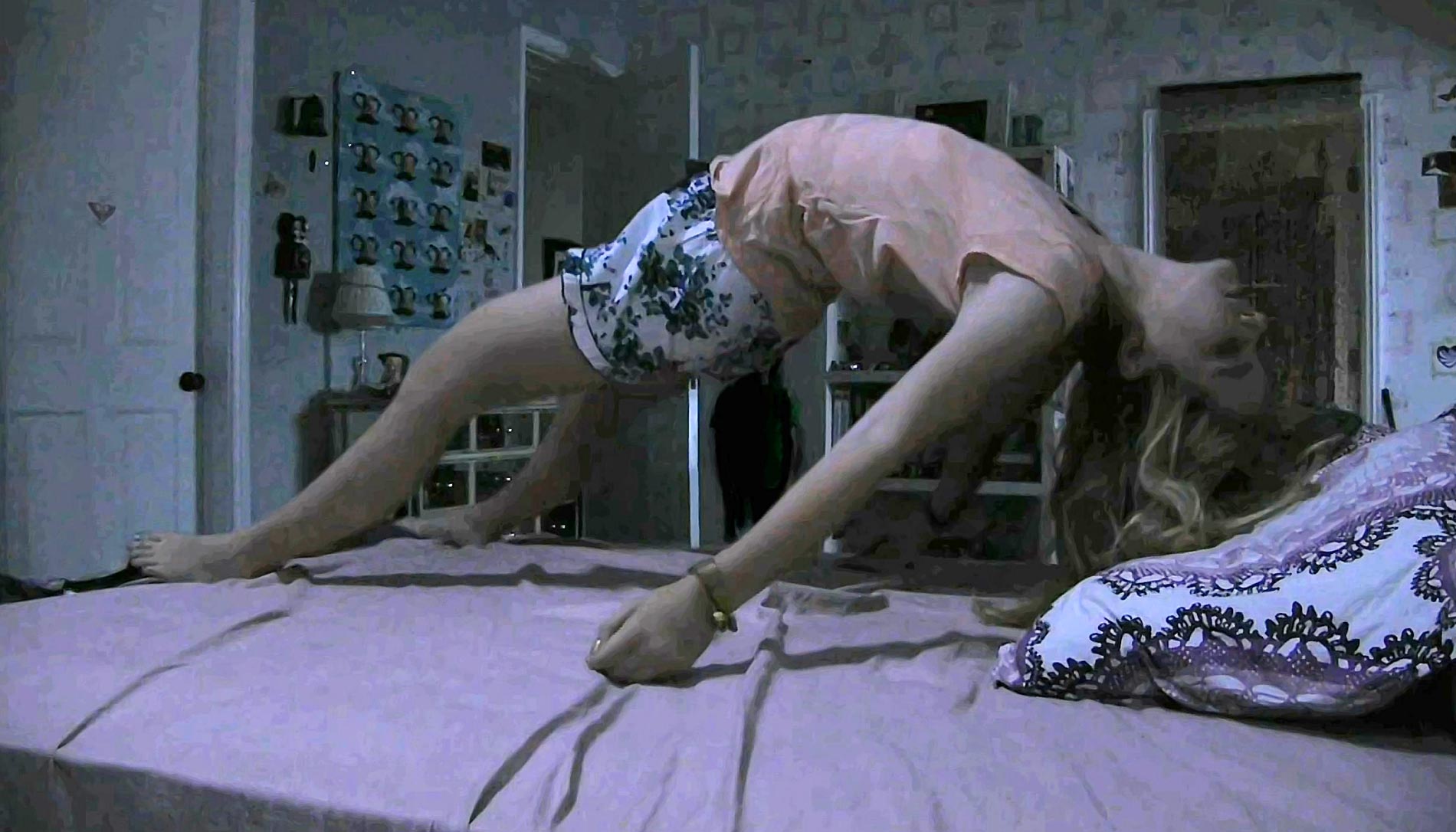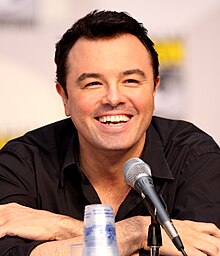Review: The Hobbit - An Unexpected Journey

It's been nine years since the fantasy world of Middle Earth graced our cinema screens with the epic conclusion of The Lord of the Rings trilogy, The Return of the King. Now in 2012, we finally have the opening movie of what some have referred to as this franchise's "prequel trilogy": The Hobbit.
Luckily for the hardcore fans of The Lord of the Rings, there are references and cameos aplenty from the original motion pictures. From the fantastic Andy Serkis reprising his role as the iconic Gollum to Elijah Wood's Frodo showing face for nostalgia's sake, it's clear to see that this movie was produced with the fans in mind. That said, anyone completely new to the series will not be lost, as the fresh tale of Bilbo Baggins and his unexpected adventures is a whirlwind of fun, colour and unbelievably exciting storytelling in its own right.
Peter Jackson, the man known around the world for bringing The Lord of the Rings on to the big screen to ear-shattering acclaim, makes a few errors and slip ups here and there in the first of his adaptations of Tolkein's beloved children's tale, but overall they don't detract from the excitement and breathless sense of adventure in The Hobbit: An Unexpected Journey.
 From the very beginning, as some of the major musical themes from The Lord of the Rings reach our ears, we are slap-bang back into Middle Earth as though we have never left. We approach the vast narrative via its mythic setup: the terrifying dragon Smaug (seen only in teasing glimpses here) annihilates the Dwarven kingdom of Erebor. The older Hobbit, played once again by Ian Holm, is then presented to us, before we flash back in time to meet our unlikely hero at an earlier time in his quiet, peaceful life. Martin Freeman is pitch perfect as Bilbo, the quiet titular character who is contacted by the instantly recognisable wizard Gandalf the Grey - and it's nothing short of awesome to see Ian Mckellen back in the role, bringing a sparkle of fun and wit with every subtle grin and eyebrow raise. Gandalf has a quest for Bilbo, and before long the unassuming Hobbit is caught up in a Dwarven mission to take back Erebor and outsmart Smaug. Finding his courage, Bilbo fights orcs, outsmarts mountain trolls and visits locations in Middle Earth he never even dreamed of - but ultimately one chance encounter in Gollum's cave alters his life and has the potential to change the world forever as he stumbles upon a seemingly meaningless golden ring...
From the very beginning, as some of the major musical themes from The Lord of the Rings reach our ears, we are slap-bang back into Middle Earth as though we have never left. We approach the vast narrative via its mythic setup: the terrifying dragon Smaug (seen only in teasing glimpses here) annihilates the Dwarven kingdom of Erebor. The older Hobbit, played once again by Ian Holm, is then presented to us, before we flash back in time to meet our unlikely hero at an earlier time in his quiet, peaceful life. Martin Freeman is pitch perfect as Bilbo, the quiet titular character who is contacted by the instantly recognisable wizard Gandalf the Grey - and it's nothing short of awesome to see Ian Mckellen back in the role, bringing a sparkle of fun and wit with every subtle grin and eyebrow raise. Gandalf has a quest for Bilbo, and before long the unassuming Hobbit is caught up in a Dwarven mission to take back Erebor and outsmart Smaug. Finding his courage, Bilbo fights orcs, outsmarts mountain trolls and visits locations in Middle Earth he never even dreamed of - but ultimately one chance encounter in Gollum's cave alters his life and has the potential to change the world forever as he stumbles upon a seemingly meaningless golden ring...
The plot is simple enough, however at 169 minutes there is enough padding in The Hobbit to ensure the entire backstory of Lord of the Rings is covered and then some. Thanks to cameos from Christopher Lee's sinister Saruman and Cate Blanchett's Galadriel, we become aware that a "Necromancer" is in hiding in dark lands. Of course, fans of the book will know that this "Necromancer" is a weaker form of Sauron himself, the chief antagonist of The Lord of the Rings; it's a clever trick on Peter Jackson's part to reward fans this way, however this could be potentially alienating for those new to the world of Middle-Earth.
 On to The Hobbit, however. There is no doubt at all that it's a long slog, and there are times when it seems overstuffed and out of balance. At least all the scenes in the theatrical cuts of The Lord of the Rings felt essential to the primary narrative; here there are added characters, deviating from the book (a good example is Radagast The Brown, a slightly loopy wizard who notices evil rising in the forests) and occasionally throwing in characters from the original trilogy unnecessarily. Elijah Wood's appearance as Frodo is not essential, as nice as it is, and there is a sense that Jackson himself was on something of a nostalgia trip when recruiting all his old chums to make cameos.
On to The Hobbit, however. There is no doubt at all that it's a long slog, and there are times when it seems overstuffed and out of balance. At least all the scenes in the theatrical cuts of The Lord of the Rings felt essential to the primary narrative; here there are added characters, deviating from the book (a good example is Radagast The Brown, a slightly loopy wizard who notices evil rising in the forests) and occasionally throwing in characters from the original trilogy unnecessarily. Elijah Wood's appearance as Frodo is not essential, as nice as it is, and there is a sense that Jackson himself was on something of a nostalgia trip when recruiting all his old chums to make cameos.
These cameos unfortunately overshadow what is already a very big cast of very big characters. The thirteen Dwarves whom Bilbo chooses to follow are often given a hard time; only three or four really stand out from the crowd of beards - some barely get any dialogue at all. It was inevitable that with a fellowship of fifteen characters - those being the Dwarves, Gandalf and Bilbo - that some would be left in the lurch and unfortunately that inevitability is realised. That said, a superb performance from Richard Armitage as Thorin, the leader of the company, more than makes up for the lack of distinctive personality from his troops. He is this trilogy's Aragorn, a man (dwarf) hardened by war and loss, and his belief that Bilbo is not fit for such a mission creates some exciting interaction.
 It's this form of interaction that gives the film its heart - Martin Freeman's acting is spot on, and although it ocassionally feels as though Bilbo is given a back seat in the narrative thanks to Gandalf's little side-quests, his understated performance shows us exactly why Peter Jackson decided to work around Freeman's schedule to ensure he got the part. Just when it feels like Bilbo isn't getting anywhere positive and he has given up on the quest, a fantastic piece of character drama occurs when he falls into Gollum's cave. Andy Serkis is once again superb as the spiteful Hobbit-turned-creature; Gollum may look a little younger and act a lot more evil, but before long it feels as though he's never been off our screens. The iconic riddle scene, in which Bilbo bargains for his life in a game of wits with Gollum, is played out brilliantly and provides an excellent break from the relentless chase scenes before it, giving Freeman a chance to flex his acting muscles opposite Serkis's hectic and manic motion-captured display of insanity.
It's this form of interaction that gives the film its heart - Martin Freeman's acting is spot on, and although it ocassionally feels as though Bilbo is given a back seat in the narrative thanks to Gandalf's little side-quests, his understated performance shows us exactly why Peter Jackson decided to work around Freeman's schedule to ensure he got the part. Just when it feels like Bilbo isn't getting anywhere positive and he has given up on the quest, a fantastic piece of character drama occurs when he falls into Gollum's cave. Andy Serkis is once again superb as the spiteful Hobbit-turned-creature; Gollum may look a little younger and act a lot more evil, but before long it feels as though he's never been off our screens. The iconic riddle scene, in which Bilbo bargains for his life in a game of wits with Gollum, is played out brilliantly and provides an excellent break from the relentless chase scenes before it, giving Freeman a chance to flex his acting muscles opposite Serkis's hectic and manic motion-captured display of insanity.
Aside from this, though, as soon as Bilbo departs The Shire the action ramps up considerably. While this is an exciting display of visual effects, fans will be very disappointed to find that Jackson has redesigned many of his iconic monsters. Orcs are now completely CGI; not the menacing, towering stuntmen that provided such real threat and menace in The Lord of the Rings. This is a poor decision on Jackon's part, as is the sudden choice to have the Orcs speak in their own tongue with subtitles. This only alienates us further, and unfortunately provides inconsistencies in the overall story - in his quest to draw us further into his vision, Peter Jackson has sadly pushed us further away.
Luckily though, pure old fashioned excitement comes from gargantuan battle sequences. From the breathless scene in which the company flee from wolves to an astonishing display of effects when the fellowship watches two stone giants attack each other, The Hobbit never fails to make a jaw drop. It simply looks fantastic, and in a rare case for the format, the film looks absolutely stunning in 3D. Aerial shots of barren landscapes soar out of the screen and mythical creatures come to life gloriously - appropriately given its happier tone, The Hobbit is much more colourful and vibrant than Lord of the Rings, and Jackson has done brilliantly making the same world seem so new and exciting.
Summary

It's been a long time coming and luckily The Hobbit: An Unexpected Journey is worth the wait with exceptionally committed performances from the cast, in particular Martin Freeman's emphatic Bilbo and Richard Armitage's battle-hardened Thorin. Occasionally overwhelming cameos from Lord of the Rings characters threaten to steal the spotlight from the main narrative, however The Hobbit never completely slips off the rails. From nail-biting chase scenes to superb character interaction, the thrill-ride doesn't let up and it certainly doesn't let go of its message, one which Bilbo himself discovers - that getting off your arse and breaking the norm isn't necessarily a bad thing. Peter Jackson does make rather a lot of errors here and there, such as some alienating CGI and a lack of character development for some of the supporting cast, but overall The Hobbit: An Unexpected Journey is nothing short of superb for previous fans of The Lord of the Rings and for newcomers to this fantasy world.
Middle Earth? It's good to be back.
9/10 - Brilliant
See it if you liked: The Lord of the Rings (2001-2003), The Wizard of Oz (1939), Brave (2012)
The Hobbit: The Desolation of Smaug will be released in December 2013.
The Hobbit: There and Back Again will be released in July 2014.












































